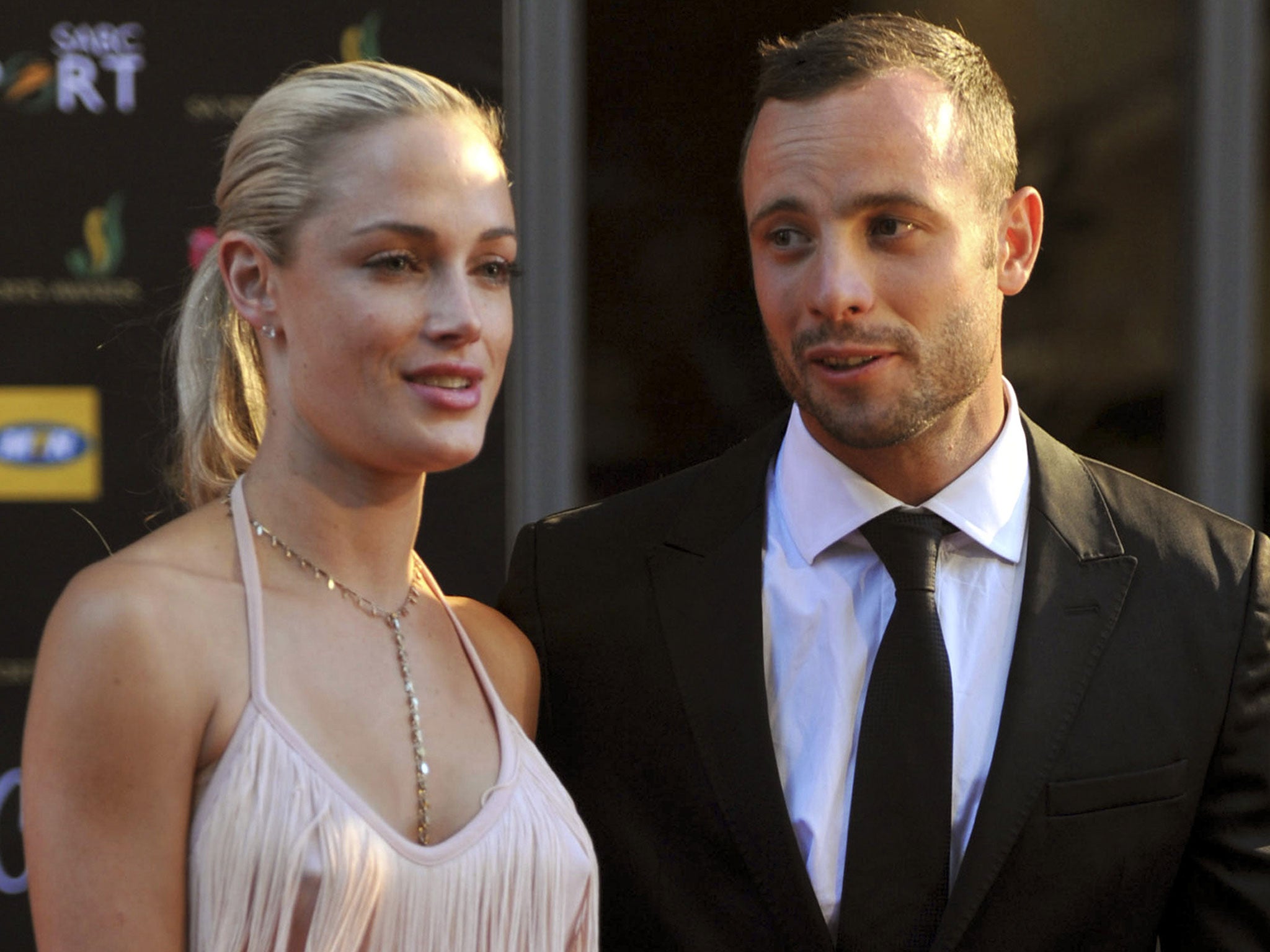Oscar Pistorius: From Olympic superstar to Pretoria prison
Double-amputee athlete was celebrated around the world before astonishing fall from grace
Your support helps us to tell the story
From reproductive rights to climate change to Big Tech, The Independent is on the ground when the story is developing. Whether it's investigating the financials of Elon Musk's pro-Trump PAC or producing our latest documentary, 'The A Word', which shines a light on the American women fighting for reproductive rights, we know how important it is to parse out the facts from the messaging.
At such a critical moment in US history, we need reporters on the ground. Your donation allows us to keep sending journalists to speak to both sides of the story.
The Independent is trusted by Americans across the entire political spectrum. And unlike many other quality news outlets, we choose not to lock Americans out of our reporting and analysis with paywalls. We believe quality journalism should be available to everyone, paid for by those who can afford it.
Your support makes all the difference.Oscar Pistorius has been granted his freedom by a parole board in South Africa after serving a decade behind bars for the 2013 murder of his girlfriend Reeva Steenkamp.
After a highly-publicised trial, following the overturning of an earlier conviction, the athlete, now 37, was jailed for 13 years and five months for the killing in 2016 after being found guilty of culpable homicide, sealing the former icon’s dramatic fall from grace.
Just a year before Steenkamp’s death, Pistorius had starred at the London Olympic Games in summer 2012 and won worldwide fame.
In addition to his haul of three medals – two gold and one silver – Pistorius had become the first double-amputee to compete in both the Olympics and Paralympics.
The historic achievement cemented his place as a trailblazer and celebrated ambassador for disability sport.
Accolades had streamed in as fast as the running records Pistorius broke.
He appeared on the Time 100 list of the world’s most influential people in 2008 and 2012, was named Laureus World Sportsperson of the Year with a Disability and handed an honorary doctorate by the University of Strathclyde in Glasgow.
The story of the little boy who had both legs amputated below the knee as a baby and turned his disability into a strength captivated the world.

In South Africa, he became a national icon and when he started dating Reeva Steenkamp, a model and growing celebrity on the verge of her reality television debut, his status was elevated further.
But that all changed on Valentine’s Day 2013, when he shot her dead in his bathroom, firing four shots through the door with a licensed 9mm pistol.
He later claimed that he had wrongly assumed his girlfriend, 29, was a dangerous intruder who had broken into their apartment, an argument refuted by prosecutors, who said Steenkamp had fled to the toilet cubicle during a late-night row and that Pistorius had killed her in a fit of rage.
He was arrested by police that night and charged with murder the next day as grisly details of Ms Steenkamp’s death emerged in the South African media.
Hours later, billboards displaying his face were torn down as advertisers rapidly withdrew endorsement deals and former friends moved to distance themselves from the athlete as quickly as possible.
If the South African media had been accused before of overlooking Pistorius’s faults, the tide was turned as ex-girlfriends and critics took to the airwaves and past incidents were examined in minute detail.
There was his tantrum at the London Paralympics 200m race, for instance, when he accused a Brazilian athlete of beating him into second place with illegal blades. No rules had been violated.
Past reports of a gun by his bedside and a rifle by a window seen by journalists surfaced and there was the tweet describing how he walked into his house, believed there was a burglar present and immediately went into “recon mode”.
Evidence presented during his first trial revealed the extent of his fascination with guns, including footage from a firing range showing him excitedly exploding watermelons with a “zombie stopper”.

Gradually, the image of a heroic and congenial sportsman who had battled against adversity to blaze a trail for disabled athletes around the world, was replaced with that of a gun-toting playboy with a huge ego and temper to match.
Now, after almost 11 years in jail, Pistorius will be released on Friday 5 January 2024, given therapy for anger management and will remain under supervision until the end of his sentence, according to South Africa’s Department of Corrections.
He was given a second chance at parole in the space of eight months after he being wrongly ruled ineligible for early release at a first hearing in March.
Rob Matthews, spokesperson for Ms Steenkamp’s mother June, addessed the media after the decision and said: “The parole board are of the opinion that he met the criteria for release on parole and I believe June will be fine with that, but I can’t read inside her mind, I can only interpret what she said.
“My personal opinion is that part of the road to rehabilitation is acknowledging what you have done and being accountable for what you have done and being man enough to say ‘I’ve done it’, and all the consequences that go with it, not just lip service because it’s easy to say sorry when you’ve been caught.”
Subscribe to Independent Premium to bookmark this article
Want to bookmark your favourite articles and stories to read or reference later? Start your Independent Premium subscription today.

Join our commenting forum
Join thought-provoking conversations, follow other Independent readers and see their replies
Comments